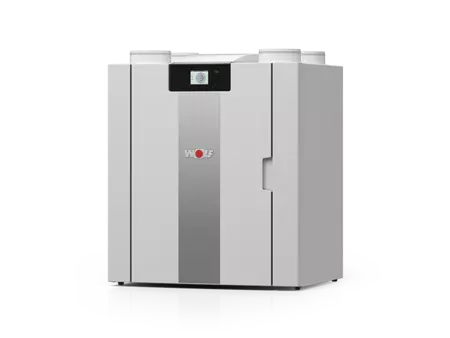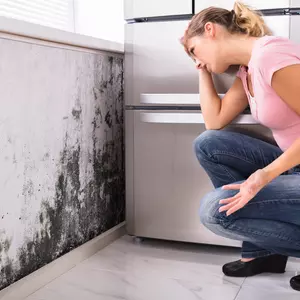
Poor air quality
Causes, consequences and how to fix it
Air quality is a measure of how pure the air is in your home. Contaminated air can be bad for your health and can even lead to respiratory disorders.
Read on to find out how you can tell if your air quality is bad, the possible causes and some steps you can do to improve your air quality.
How do you measure indoor and outdoor air quality?
In Germany, air quality is measured on a regular basis by environmental agencies at a federal and state level using a network of traffic and background stations. Berlin’s network, for example, combines 16 monitoring stations in varying locations.
The National Meteorological Service also monitors air quality every day on the basis of EU standards and directives. It puts together an air quality index which identifies the average level of specific pollutants over the course of a day, hour or half-hour period.
This index rates each pollutant on a scale of 1 (very good) to 6 (very poor), based on how many micrograms of pollutant there are per cubic metre of air.
Homeowners can also use a TÜV-certified flow meter or multifunction meter to assess their indoor air quality. These devices can be used to measure the amount of fine particles in the air, as well as air humidity, oxygen and CO2 levels.
How to improve your air quality
Here are the factors that have the biggest impact on your air quality and what you can do to counteract them:
Dry air
Heating your home in winter without letting enough fresh air in can make your air feel very dry. Studies have shown that ventilating on a regular basis also reduces the risk of infection.
Be sure that you ventilate your home properly on a regular basis. An air humidifier or a controlled mechanical ventilation system are relatively easy ways of controlling the air humidity in your home.
Traffic, fireworks and industrial sites
Traffic, industrial sites and fireworks all increase the amount of fine particles and nitrogen oxides in the air.
Ventilation systems use particle filters to remove these from the air, just like in a car. WOLF domestic ventilation systems use a variety of particle filters made from high-quality materials.
Mould
Mould is bad for your health and likes nothing better than a damp environment.
You can make your home less hospitable to mould by ventilating on a regular basis using either a fully automatic ventilation system or traditional window ventilation.
Dust and pollen
Dust and pollen can irritate your lungs and affect your breathing, even if you’re not allergic to them.
Vacuum regularly and use dust filters to reduce the amount of dust in your living space. Modern ventilation systems can also filter your air and remove viruses and bacteria.
Chemicals from paint and furniture
Some appliances, coatings and floor linings can release hazardous chemicals into the air.
Make sure that any furniture, children’s toys or anything else you buy meets the appropriate environmental standards. Try to thoroughly ventilate the area whenever you buy a new appliance.
Mechanical ventilation
CWL-2
The most compact in its class, extremely quiet and highly efficient – the new CWL-2 series from WOLF.

When is air quality considered bad?
We breathe in around 8 litres of air every minute, so poor air quality can have a negative impact on anyone’s health. Dry and heated air provides excellent conditions for viruses and bacteria.
Pollutants, CO2 and dust in the air can affect your ability to concentrate and make you feel tired. They can also make you more susceptible to headaches. The composition of natural dry air is:
- Nitrogen (N2): 78.08%
- Oxygen (O2): 20.95%
- Argon (Ar): 0.93%
- Carbon dioxide (CO2): 0.04%
The Federal Environment Agency and the Weather Service measure air pollution based on the air quality index, with a focus on fine particles and nitrogen oxides. So what are the factors that can affect the quality of the air in your home?
- High levels of CO2: The amount of CO2 in your air will go up if you don’t ventilate your home properly.
- Air humidity: Relative humidity inside a building that should be between 40 and 60%. If your air humidity is too low, your mucous membranes may dry out. If it is too high, you are providing a good environment for mould and bacteria.
- Nitrogen oxides: Nitrogen oxides are oxides of nitrogen in gaseous form. These include nitrogen monoxide (NO) and nitrogen dioxide (NO2). Nitrogen oxide levels are well above the limit in several German cities. Studies indicate that high levels of nitrogen oxide in the air can cause diseases.
- Unpleasant odours: Unpleasant odours have a negative impact on the quality of the air in your home and can have a large number of causes.
- Dust and pollen: Dust and pollen in the air have a significant impact on air quality and are particularly problematic for people with allergies.
- Viruses and bacteria: Bacteria and viruses thrive in dry heated air because it can dry out your mucous membranes. This is a particularly big problem in winter.


